Trending Now
We have updated our Privacy Policy and Terms of Use for Eurasia Group and its affiliates, including GZERO Media, to clarify the types of data we collect, how we collect it, how we use data and with whom we share data. By using our website you consent to our Terms and Conditions and Privacy Policy, including the transfer of your personal data to the United States from your country of residence, and our use of cookies described in our Cookie Policy.
{{ subpage.title }}
Top 10 game changers of 2023
Whether you win or lose, in politics it is still how you play the game that matters. This year, several global players not only played the game, but they changed it in significant and surprising ways. Join us as we revisit some of the most pivotal moments, figures, and trends of the year in geopolitics.
1. Welcome to the AI era
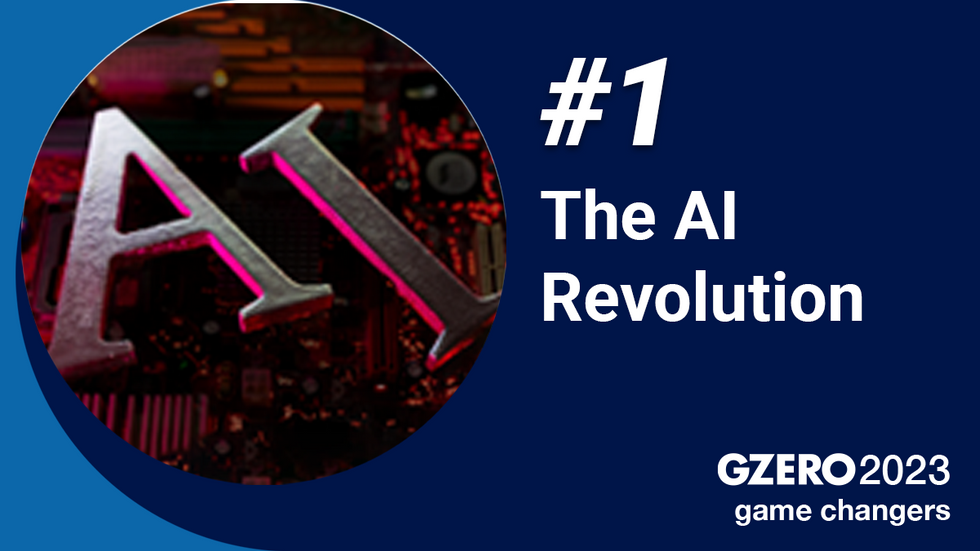
The intelligence may be artificial, but the political stakes are real. Geeks have quietly been developing AI for years, but it wasn’t until the release of ChatGPT late last year that everyone became fully aware of and spooked by the technology’s immense power. It promises to make our societies more efficient, while also threatening to eliminate jobs and undermine trust in institutions, elections, and media (deepfakes anyone?). Throughout 2023, the most powerful governments in the world began racing to find regulatory balances for AI that decrease risks without stifling innovation. The game has changed: 2023 was just the start.
2. The Mugshot
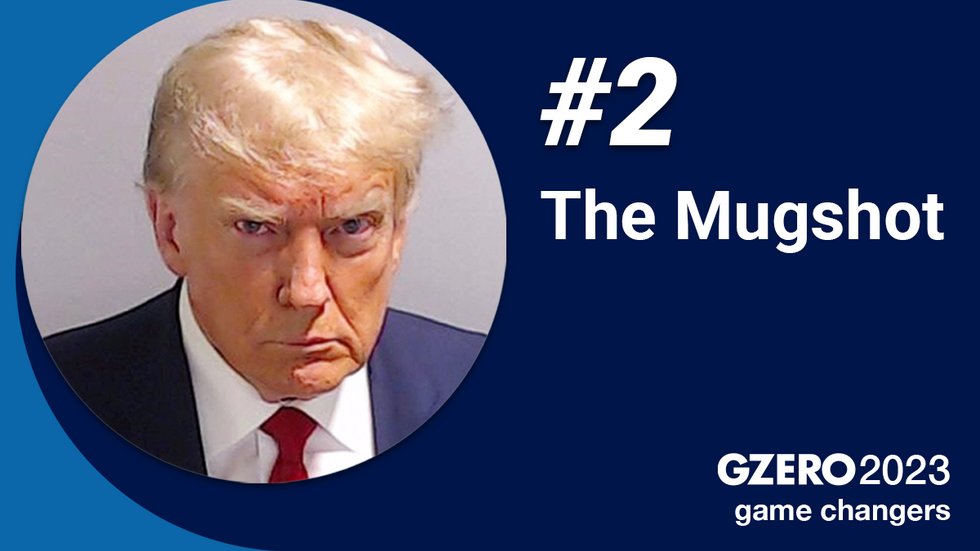
You would think that a twice-impeached former president facing multiple indictments would have almost no shot at the White House. But Donald Trump, the first ex-president to be criminally indicted in US history, remains an enigma in American politics. Rather than undermining his 2024 campaign, Trump’s legal woes seem to have given him major momentum. His mugshot from Georgia played a particularly big role in bolstering his campaign – helping the former president raise millions. Trump ends 2023 far ahead of the remaining GOP contenders – without even participating in presidential debates – and he’s also leading President Joe Biden in the polls.
3. Russian trenches
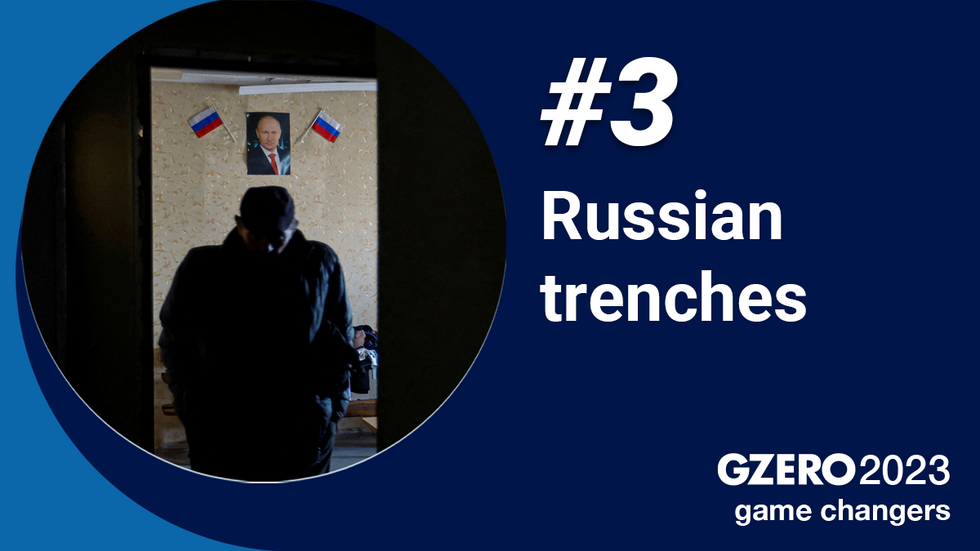
In 2023, Ukraine launched a counteroffensive it hoped would score major gains against Russian invaders and persuade American and European backers that their military and financial investments could help Ukraine win the war. But Russia’s ability to entrench its troops behind heavily fortified barriers frustrated Ukraine’s plans, and Russian forces still occupy 18% of Ukraine’s territory. The war grinds on, and Vladimir Putin is now more confident than ever that Russia can outlast Western support for Ukraine.
4. Modi’s moment
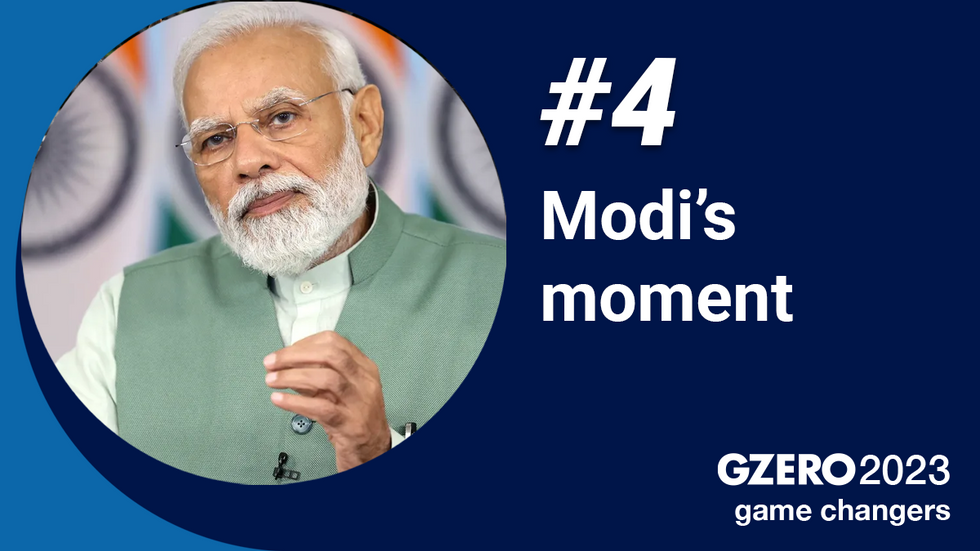
During the pandemic, and then as Western sanctions against Russia pushed global food and fuel prices higher, the world’s wealthy democracies and developing countries of the Global South grew further apart on important issues. No one did more to bridge that gap in 2023 than India’s Prime Minister Narendra Modi. By improving India’s relationship with the G7 and through his leadership of the G20 this year, Modi brokered practical compromises on issues like climate policy and debt. Even controversies over the murder of an activist in Canada and a suspected plot against another in the US didn’t much dent Modi's standing with Western powers that increasingly see him as an important ally against China.
5. American Unions – strong again?
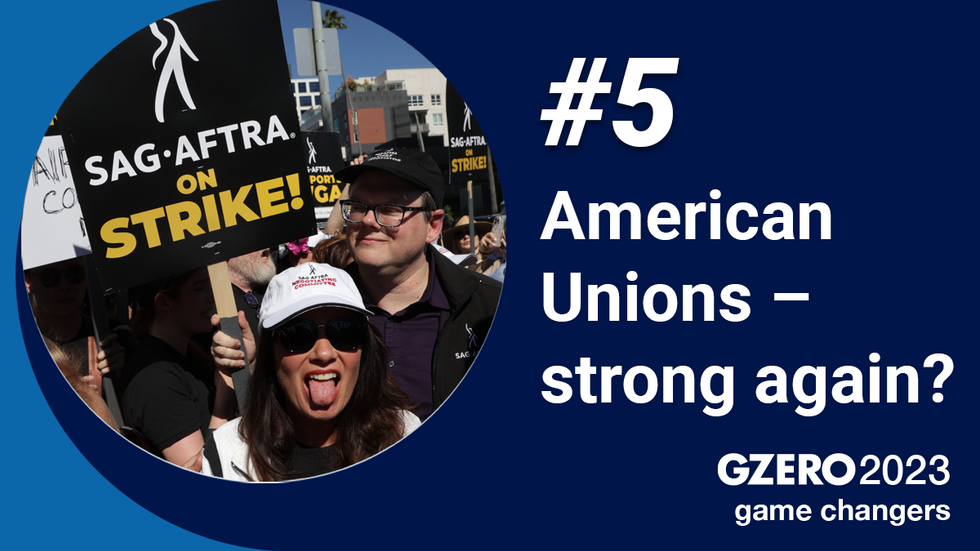
US unions flexed in 2023. Striking autoworkers won concessions from Big Auto and even drew a US president to the picket lines for the first time. Actors and writers' guilds shut down Hollywood for months, and the Teamsters reached a deal with UPS to avoid crippling 6% of the US economy. Overall, nearly half a million workers went on strike this year, nearly eight times as many as in 2021. Non-union employment is still expanding faster, yes, but organized labor has muscled its way back into the political conversation, and popular support for unions is near highs not seen since the 1960s.
6. Hamas
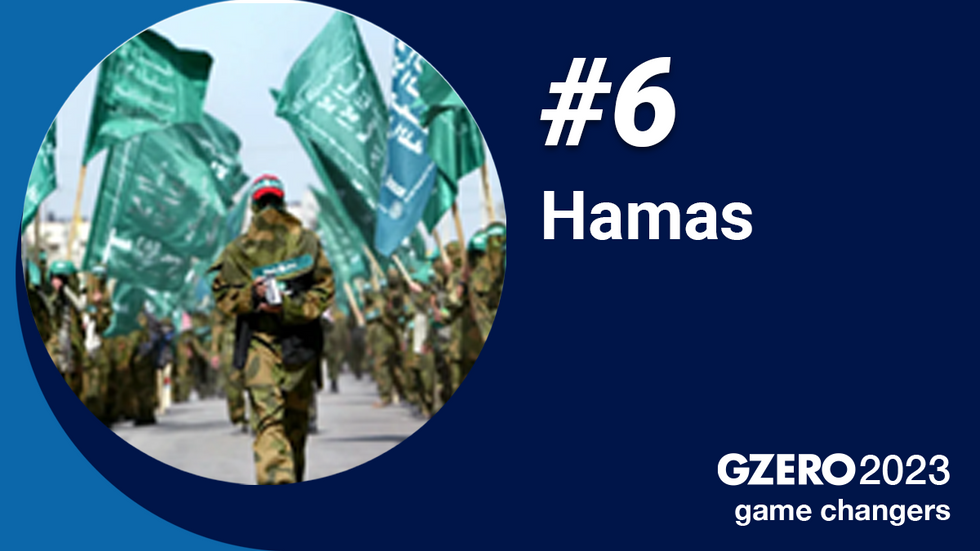
Until the evening of Oct. 6, 2023, an increasingly right-wing Israel looked like it was able to contain Hamas in the Gaza Strip, deepen its illegal occupation of the West Bank with impunity, and still move towards normalizing ties with the Arab world’s most formidable powers. The plight and aspirations of the Palestinians, meanwhile, had fallen almost entirely out of the global spotlight. You already know what happened next.
7. MBS
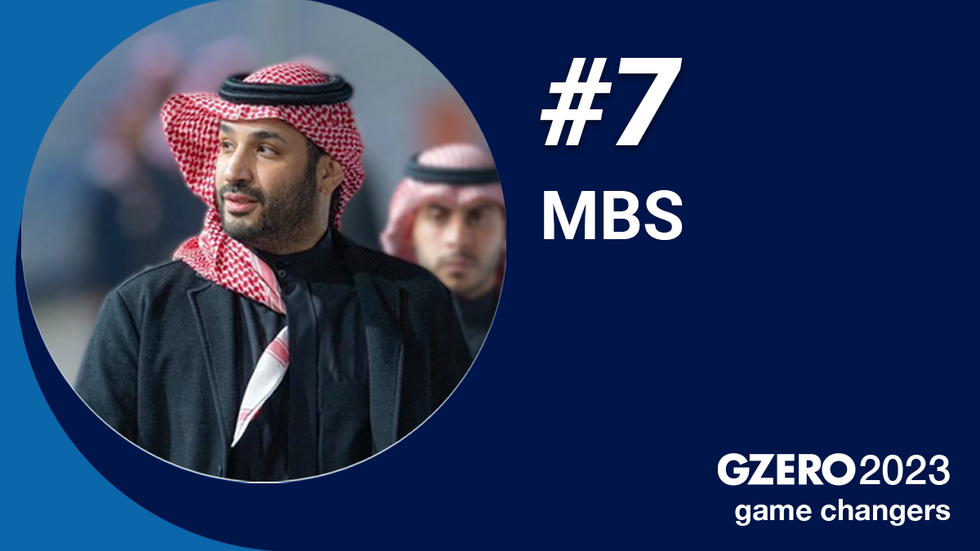
A few years back, Jamal Khashoggi’s brutal murder was seemingly all anyone talked about when they mentioned Saudi Crown Prince Mohammed bin Salman, aka MBS. But the oil-rich kingdom’s investments in popular sports – primarily soccer and golf – have shifted the conversation away from his acts of impunity and his country’s record of human rights abuses. The Saudi soccer league snatched up some of the world’s top players in 2023 after roping in superstar Cristiano Ronaldo, disrupting the status quo in a sport long dominated by Europe. Critics say MBS is “sportswashing” to distract from various other controversies, but he doesn’t seem to care as long as it helps the kingdom increase its GDP and become a top tourist destination.
8. Power Barbie
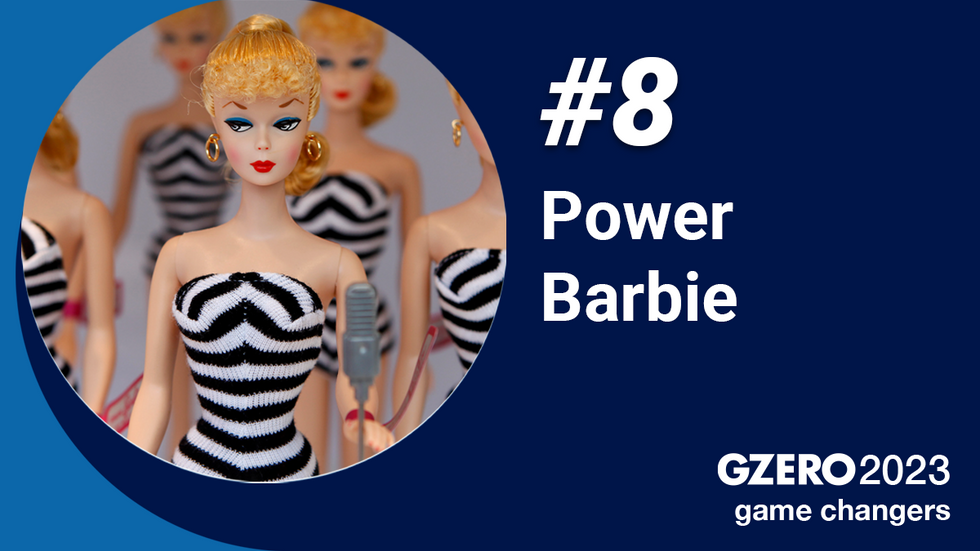
In the decades since 1945, when Ruth Handler first decided to make a doll that encouraged pursuits beyond motherhood, Barbie had strayed from its feminist origins. But director Greta Gerwig rediscovered them with “Barbie,” a global cinematic sensation in which Barbie pushes Ken aside and pursues her own ambitions. Speaking of ambitions, the film made Gerwig the first woman to direct a film surpassing $1 billion at the box office worldwide.
9. Giorgia Meloni
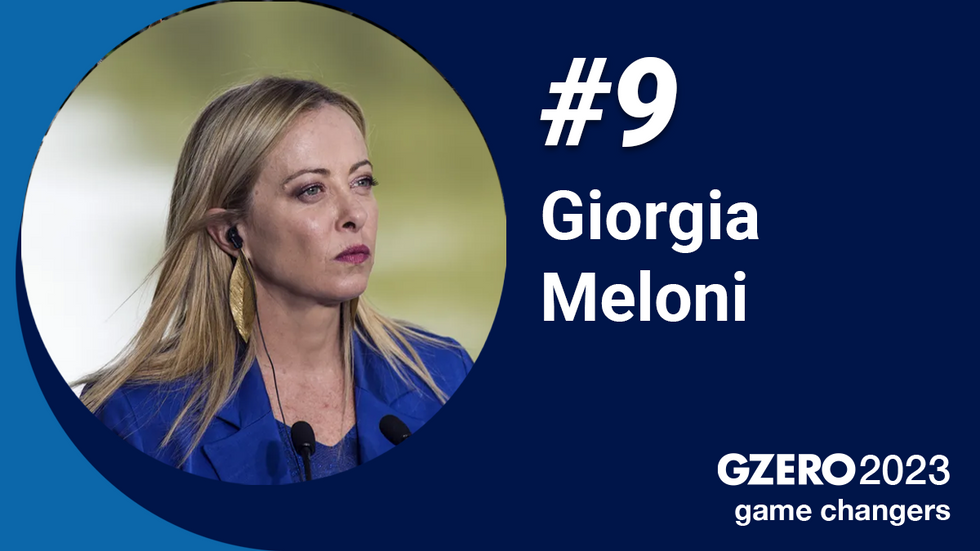
Meloni was a relative unknown on the international stage when Italian voters put her far-right Fratelli d’Italia Party in power late last year, triggering anxieties about the EU’s third-largest economy becoming something like Hungary on steroids: isolated and a thorn in Brussels’ side. Instead, Meloni’s eager embrace of the EU and Ukraine ingratiated her with EU leaders — who in turn have been more open to listening to her ideas on tightening migration policy. It’s a new, electable model for far-right leaders in a Western Europe increasingly invested in the EU but worried about immigration.
10. China owes big
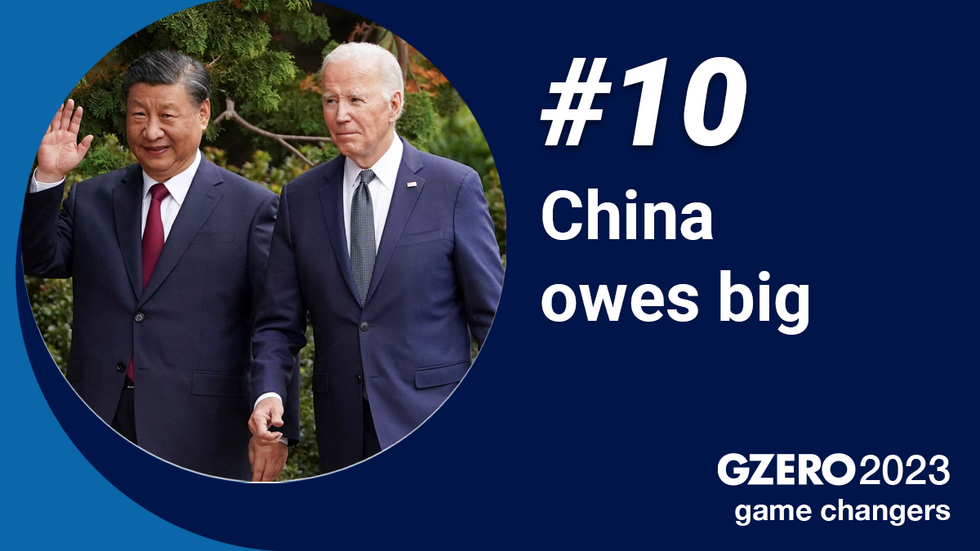
China’s booming economy defined the geopolitical trajectory of the 2010s, but 2023 looks like the year the world began to wonder and worry whether the engine was finally running out of steam. Beijing’s efforts to rein in a staggering debt-to-GDP ratio of 272% have caused knock-on effects ranging from the property market, where two-thirds of Chinese household wealth is invested, to low youth employment, right down to the balance sheets of local governments. It constrained economic growth in 2023, causing global concern about the health of the world’s second-largest economy, — and even seemed to force Xi Jinping to take a more conciliatory approach in relations with the US.